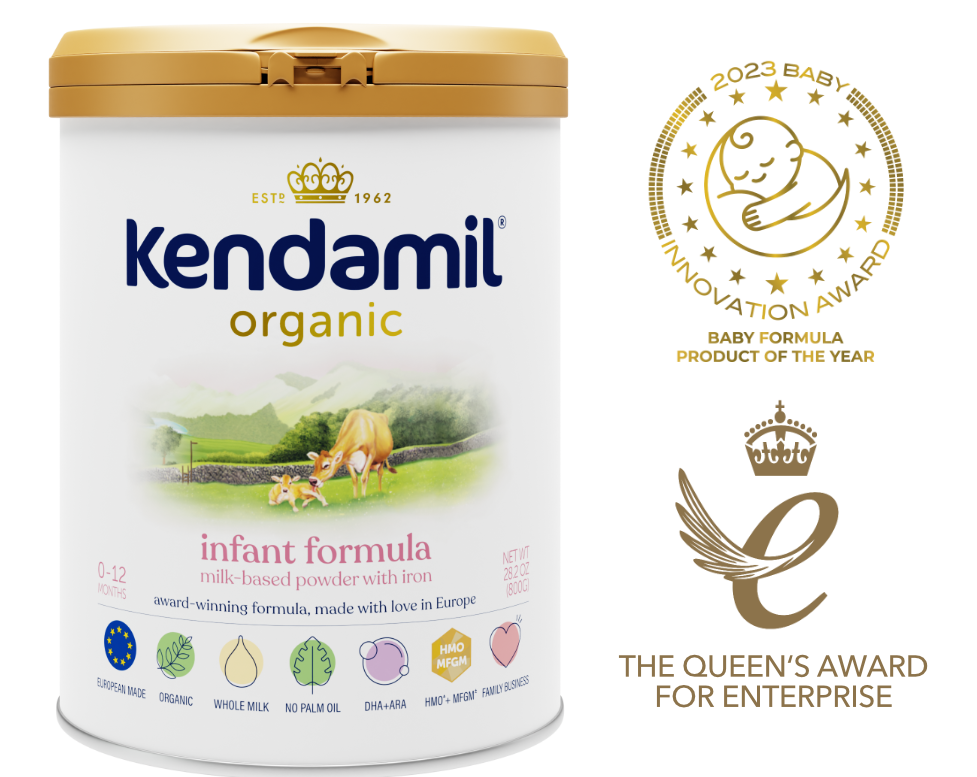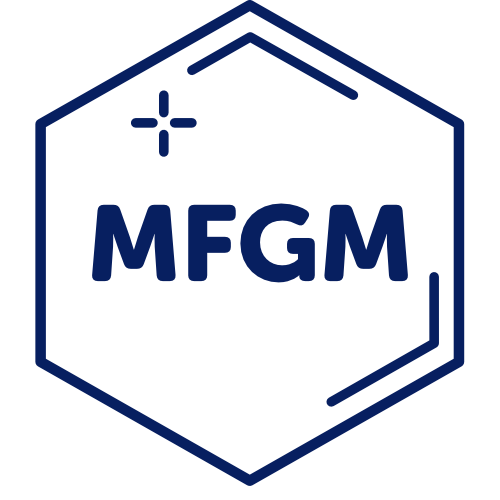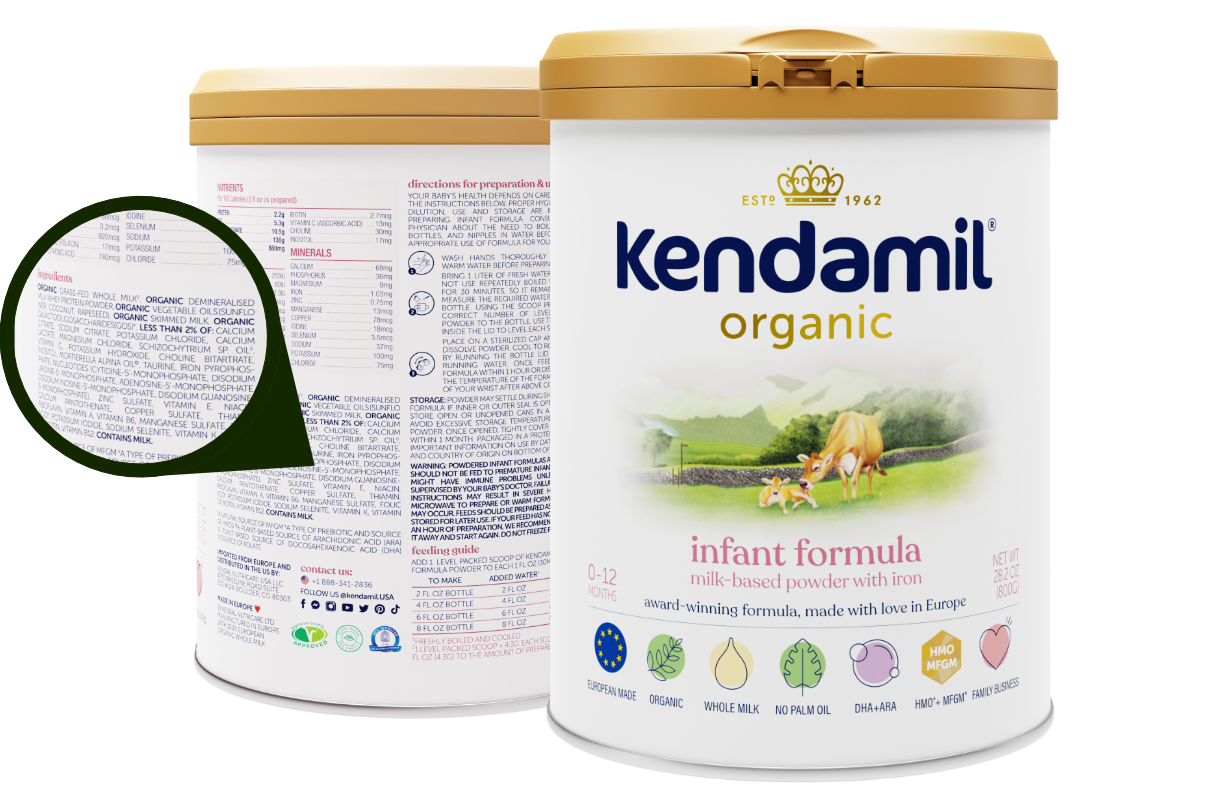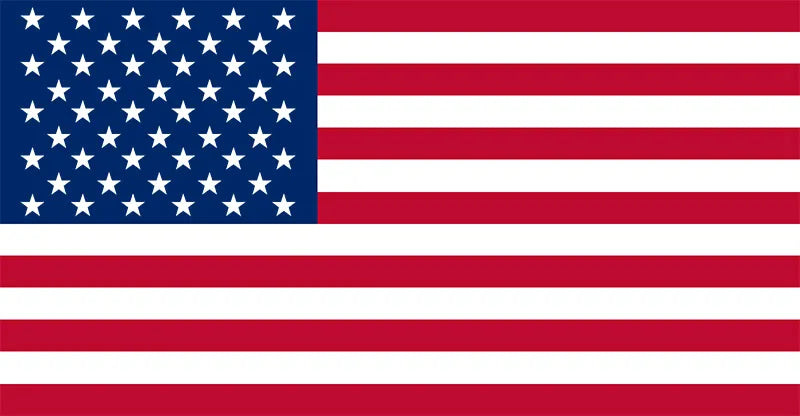
made with organic whole milk for a naturally creamier formula




European Made
The What: Kendamil is made with love in Europe
The Why: Our entire infant formula range is manufactured in Europe, adhering to the rigorous standards established for infant formula by the European Union and the United States.


Whole Milk Fats
The What: Kendamil uniquely uses whole milk as a source of fat
The Why: Excluding water, breastmilk is made up of approximately 33% fat content, making it a fundamental building block for life and a crucial component of infant formula. By uniquely using whole milk as our primary ingredient and a source of fat in our formula, we are able to reduce overall vegetable oils (which other brands use exclusively) and avoid oils like palm and soy entirely. It also means Kendamil has naturally occurring MFGM.
European Organic
The What? Kendamil Organic is proudly Certified by the European Union and the UK Soil Association.
The Why? Only 1% of the world's dairy is Organic and it can take over 2 years to convert a normal farm into an organic one. By sourcing European Organic we support better animal welfare and higher nutritional quality due to the lack of GMOs, pesticides and herbicides.
No Palm Oil
The What: Kendamil has NEVER used Palm Oil
The Why: Because of the scientific research indicating that Palm Oil can lead to the malabsorption of minerals in the gut as well as the negative environmental impact of Palm Oil, we have NEVER used it in Kendamil and we promise we NEVER will.


DHA & ARA
The What: Kendamil Organic includes high levels of plant-based DHA (Omega 3) and ARA (Omega 6)
The Why: Kendamil is proud to include European-levels of DHA and ARA, which studies show supports infant visual and cognitive development. Our DHA and ARA is proudly plant-based – avoiding the use of fish oil, fish allergens and overfishing of our oceans.
HMOs & Prebiotics
The What: Human Milk Oligosaccharides (HMOs) are also found in human breast milk
The Why: Human Milk Oligosaccharides (HMOs) are found in human breast milk and play an important role in protecting gut epithelial cells, immune function and are linked to the growth of healthy gut bacteria. GOS is a type of prebiotics - the essential food source for the good bacteria in your gut.


MFGM
The What: A complex mixture of fats, proteins and carbohydrates found in breast milk
The Why: Milk Fat Globule Membrane MFGM, naturally present in breast milk, is a complex mixture of fats, proteins, and carbohydrates that forms a protective layer around the fat globules in whole milk. MFGM in infant formula has been shown to support cognitive development.
Vegetarian
The What: Kendamil is Certified Vegetarian
The Why: By sourcing our Omega 3 from marine algae and avoiding animal rennet in our production process, Kendamil is uniquely certified Vegetarian!
Family Business
The What: Kendamil is 100% family-run and independently owned.
The Why: We put your family first, because we are one. Unlike other baby formula brands owned by multinational corporations and large financial investors, Kendamil takes pride in being a family-owned and operated company.

Curious to see how Kendamil Organic compares to other baby formulas?

Hi, moms and dads,
Will & Dylan here, with news straight from our family to yours. It's been a little while since our last update, but during this time, we've been doing something incredibly important—listening to you.
Hear from us by clicking the video!

We’re returning to our original iron source for Kendamil, iron pyrophosphate. Both types of iron are perfectly valid, but this return is based on your preferences and feedback, primarily around smell and taste. All our recipes are backed by rigorous testing and are vetted by our world-class team of R&D experts. This is only a small change, but a positive one for parents. You can also rest assured that Kendamil Organic iron levels remain unchanged and meet both EU and FDA requirements for infant formula.



Iron makes up about 0.01% of our recipe, so most babies may not even notice the difference. Remember, the amount of iron isn’t changing, only its source. If your little one does seem to notice a difference, it’s likely that the formula tastes a little sweeter.
That said, every baby is different and it might take your little one a while to fully adjust.
Still feeling a bit wary about the change? We fully understand. Check out our FAQs below for a step-by-step guide on making the transition.


Adeline, 8 months
We wanted the cleanest ingredients and Kendamil is a clear winner for our baby, and she agrees!

Deacon, 3 months
So thankful to have found a formula with completely clean ingredients for our little man!

Logan, 3 months
As a mother who wasn't able to produce breastmilk for her son, it was essential to find the best formula.

Eli, 6 months
He loves the taste of the formula and I love the high quality ingredients. Thank you Kendamil for caring about babies!

Your questions answered
Kendamil Organic meets the stringent requirements set by two of the world’s leading governing bodies, the European Union and the UK Soil Association.
European Organic dairy farming promotes a higher proportion of forage in a dairy cows’ diet, with a strict minimum requirement coming from pasture.
Yes! Kendamil Organic is proudly certified as both EU Organic and USDA Organic via equivalence. This means our formula meets the strict standards set by both the European Union and the United States Department of Agriculture, including being made without synthetic pesticides, fertilizers, or GMOs. Additionally, USDA equivalence ensures that our milk comes from dairy farms that do not use antibiotics with their animals. Our dual certification reflects our commitment to purity, animal welfare, and the highest quality nutrition for your baby.
Kendamil Organic is, and has always been, made at our Kendal factory in the heart of the English Lake District.
Does Kendamil Organic meet both EU and FDA infant formula requirements?
Yes! Kendamil Organic, like all of our baby formulas, is regulated by the European Commission and it meets FDA standards. Read more about the similarities and differences in our blog, European Baby Formula Vs. American Baby Formula
Kendamil Organic formula can be found in Target, Walmart, Albertsons and many more retailers across the U.S. Visit our store locator to find Kendamil Organic at a store near you.
Kendamil’s unique whole milk recipe provides a more natural fat source for your baby and reduces the amount of vegetable oils in our formula (we proudly use no palm oil, fish oil or soy).
Whole milk also uniquely provides your little one a natural source of Milk Fat Globule Membrane (or MFGM), as identified in human breastmilk and uniquely included in Kendamil’s whole milk recipe. MFGM in infant formula has been shown to support cognitive development.
We generally recommend a transition period of 7-14 days to allow your baby’s digestive system to completely adjust to a new formula, even if you are simply moving to another stage of the same formula brand. Gas, constipation, and fussiness are fairly common reactions to a new formula. Because of this, we recommend introducing the new formula gradually by slowly swapping bottles of the current or “old” formula with Kendamil, starting with the midday feeds first and not the feeds before bed. This schedule can be alternated a bit based on the number of feedings. as some infants will feed for more or fewer feeds than indicated below:
Day 1: Feed 2 = Kendamil, remaining feeds are old formula
Day 2: Feeds 2 & 3 = Kendamil, remaining feeds are old formula
Day 3: Feeds 2, 3, & 4 = Kendamil, remaining feeds are old formula
Day 4: Feeds 1, 2, 3, & 4 = Kendamil, remaining feeds are current old formula
Day 5: All feeds = Kendamil
Number of feedings is based on Kendamil Infant Formula suggested feeding frequency in a 24 hour period for infants between 1-5 months of age.
You can switch to the new formula immediately and prepare all the feeds with the new formula on Day 1. Feedback from parents using Kendamil has shown that switching to all Kendamil bottles within 24 hours is feasible. However, for some infants, it might be easier for their digestive system to transition slowly as described above.
We do recommend speaking to your healthcare professional before making any changes to your little one’s diet that you are concerned about.
We do not recommend storing pre-prepared bottles of formula in the fridge, as Kendamil follow the guidelines set down by the UK Department of Health that feeds are made fresh on demand.
Once the powder has been added to the hot water, the feed will be suitable for use for 2 hours. We would recommend that after this time any leftover product should be discarded.
Our formula is prepared using 1 scoop per 1oz of water.
Don’t worry about needing twice the number of cans though as our scoops are half the size of the standard US ones.
As every baby is different, and we suggest following baby’s feeding cues, how much you need will really depend on the feeding demands of your little one.
As an example though, at a rate of 3-4, 4oz bottles a day, a can should last approximately 11 days.
Yes, it is. Kendamil is fully compliant with the FDA’s nutritional standards for infant formula (as detailed within [21 CFR 107.100]) and was among the first international suppliers approved by the US administration as part of Operation Fly Formula.
As a company, we have 60 years of heritage behind us and have intentionally been designing products that are suitable for use by families in the USA for several years now. This reflects our commitment not only to the US market but also to help parents in the short term and long term.
Iron is an essential mineral that plays a crucial role in the healthy development of infants. It is a key component of hemoglobin, the protein in red blood cells responsible for transporting oxygen from the lungs to the rest of the body. Additionally, iron is vital for proper brain development and the formation of myelin, a substance that insulates nerve fibers.
In the context of baby formula, iron is added to ensure that infants receive an adequate and necessary supply of this vital nutrient. While newborns initially have a store of iron acquired from their mothers during pregnancy, this reserve is only temporary and will not be sufficient to meet their growing needs once the reserve is depleted.
Iron helps prevent iron deficiency anemia, a condition that can lead to fatigue, weakness, and developmental delays in infants. It supports the rapid growth and development of various organs and tissues during this critical stage of life. The careful addition of iron to baby formula aligns with nutritional guidelines to provide a balanced and complete source of nutrition for infants.
All of our infant formula contains at least 1 mg of iron per 100 kcal.
When it comes to U.S. regulations, formulas that are manufactured in the United States under FDA regulation must have between 0.15 mg to 3 mg of iron per 100 kcal. Additionally, if a formula has less than 1 mg of iron per 100 kcal the formula is required to have a label 'Additional iron may be necessary', otherwise the label can say ‚'Infant formula with iron'.
Our baby formulas do not require the labeling 'additional iron may be necessary' since they all have the requirement of 1 mg of iron per 100 kcal.
It’s our mission to raise the bar on baby nutrition and help parents make informed choices about products for their children, so please let us know if you have any other questions or require any further support. We're here to help!




















